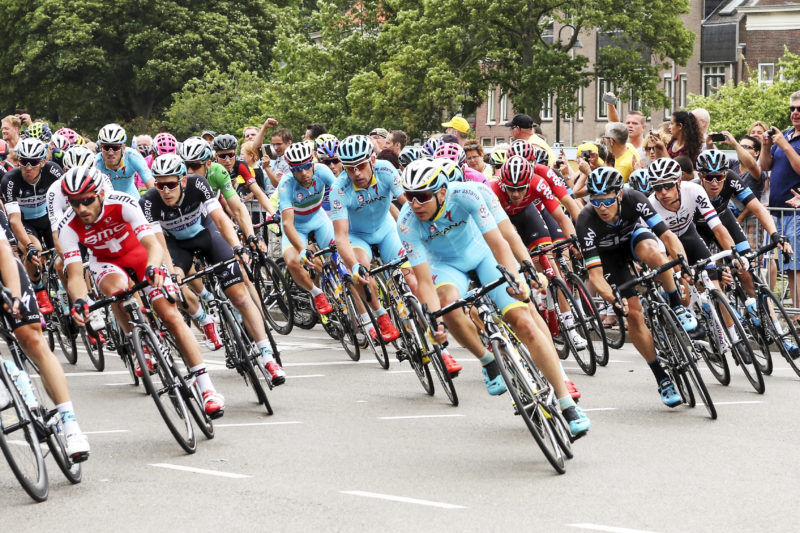
It’s Tour de France time again, which means University of Lynchburg physics professor Dr. Eric Goff and one of his students are hard at work predicting the winning times for each stage of the 2,116-mile bike race.
Goff and physics major Adam Sanders ’26 are using data about cyclist power and the race’s elevation profile to try to predict the winning time for each of the race’s 21 stages. Their predictions — which are posted on Goff’s blog and on Facebook — are often incredibly close.
“Through 11 stages, we’ve hit six stages to better than about 3% error, which is the goal I’ve set for stage-winning time predicting,” Goff said on July 12. “We’ve hit three more in the 4%-5% error range.
“Two stages have been in the 7%-9% error range, which isn’t great, but there are always a few that we don’t hit well. We can’t predict team strategies, weather, crashes, and so on. I’d say we’re having a pretty good Tour de France so far.”
Sanders, a resident of Yorktown, Virginia, learned about the research opportunity this past spring in Goff’s Physics II course.
“I wanted to participate because I found it interesting to see how the concepts I learned in my physics studies apply to real-world questions,” he said, adding that since working on the project he’s increased his proficiency with Excel, as well as his “understanding of how to do terrain data research.”
Sanders started working with Goff at the end of the spring semester. The Tour de France began on July 1 and ends on July 23. “We are taking data points from different websites, mainly the Tour’s official website, inserting them into a computer code, and using the algorithm to predict the winning time for each stage of the Tour de France,” Sanders said.
For his work, Sanders will receive a $500 stipend from the Kilby Physics Fund, which benefits Lynchburg’s physics department. There have been other perks, too.
“I’ve found working with Dr. Goff to be pretty fun,” Sanders said. “He’s always willing to help out with anything. We Zoom chat about once a week, and at the end he always says to reach out if I need help with anything.”
Sanders, who wants to work for the U.S. government someday, added, “This experience will be a great help on my résumé — to be able to put that I worked with a well-respected physicist, Dr. Goff.”
So far, Goff is pleased with his student researcher’s work. “Adam has done a great job acquiring terrain data for the 21 stages of the race,” he said. “As the summer progresses, he’ll use some of his introductory physics knowledge to begin learning how the race is modeled.
“He’ll also start to break down some of the stages that have already been completed.”
Numerous Lynchburg students have worked with Goff on his Tour de France research over the past two decades. “Research is a pivotal part of a physics major’s experience at Lynchburg,” Goff said.
“During my 21 years here, I’ve had students present research work and papers at local, national, and international conferences. They have appeared with me in local, national, and international media stories. I’ve published numerous papers with my students.
“Those experiences have helped my students better learn material they have to learn in a rigorous physics curriculum, strengthened students’ résumés, and provided them with valuable skills needed to investigate the natural world.”

